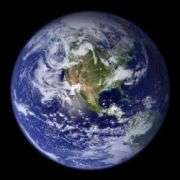Rapid changes in the winter climate

The Baltic Sea winter climate has changed more in the last 500 years than previously thought. Research at the University of Gothenburg, Sweden, shows that our part of the world has experienced periods of both milder and colder winters, and the transitions between these climate types seem to have been abrupt.
Some of the world's longest climate data series with information on air temperatures and ice coverage in the Baltic Sea area over the last 500 years can be found at the University of Gothenburg's Department of Earth Sciences. Using new statistical methods to study the data series, researcher Christin Eriksson at the Department of Earth Sciences investigated the climatic variations in northern Europe since the 1500s, focusing especially on the winter climate.
Her study shows that the winter climate in the Baltic Sea region is characterised by long periods of either mild or cold winters, and that the transitions between these different climate types have been rather rapid. The fact that several independent Baltic Sea data series point in the same direction reinforces the researchers' conclusion that the area's winter climate tends to change surprisingly fast.
The data series enabled Eriksson to identify 15 periods during the last 500 years that deviated from average. Eight of these were warmer than average and seven were colder. The study indicates that we are currently in a warm period that started in the late 1800s. It also shows that there has been more variation among the winters in the cold periods than in the warm.
'To be able to understand the effects of global climate change, we must understand how the climate changes regionally', says Eriksson.
The study also looked at maximal ice coverage and river runoff, and found that the average maximum ice coverage has been lower in the last 100 years than earlier, while the river runoff has been stable. The results suggest that a future temperature increase may lead to a decreasing freshwater supply in the South but an increasing supply in the North, which may significantly affect the salt balance in the Baltic Sea and therefore its sensitive ecosystem.
Source: University of Gothenburg (news : web)


















